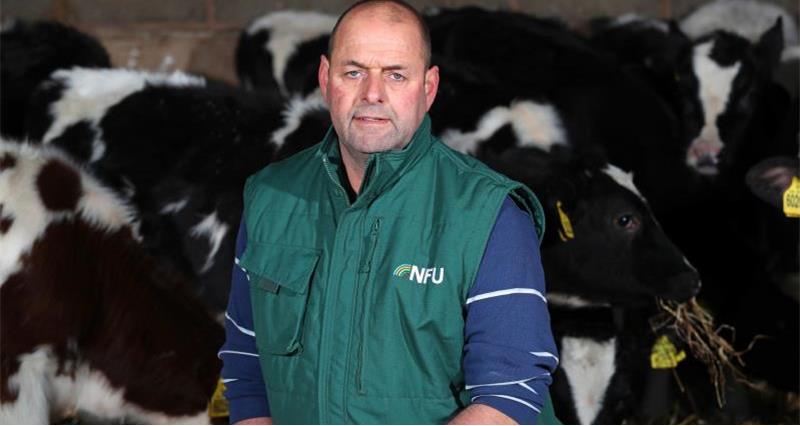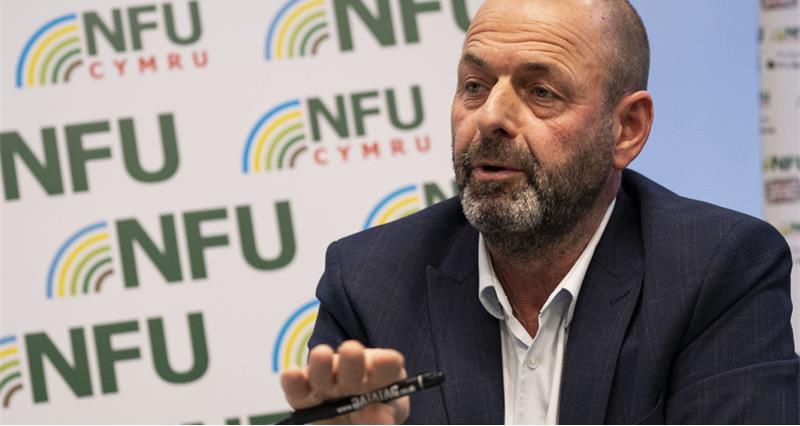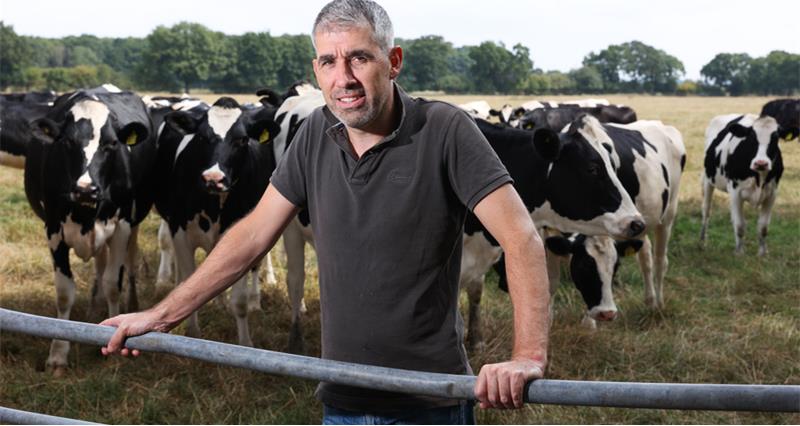The latest raft of dairy price announcements means that for many farmers next month’s milk cheque will see prices dropping into the 30s. This is similar to prices seen last year, but back then the market was on the rise – with the difference between the lowest and highest prices paid linked to how commodity dependant a processor is.
A challenging spring ahead for farm businesses
For most businesses I know, the high prices we started to see towards the end of last year were not sufficient to deal with a sustained period of high input prices.
With cost of production lying around the mid-40s, I have concerns about the future of many farm businesses as market signals indicate a challenging springtime for farmgate milk prices.
It is clear farm resilience should not be taken for granted.
Business performance last year widely varied depending on a range of management decisions, weather, location, energy contracts, your end-market, and so on.

Falling prices will mean that volumes quickly come under pressure and production levels will not be sustainable, this could lead to supply issues later in the year. We know that sentiment often drives the market, but farmers cannot base business decisions on sentiment alone.
PM must deliver on food and farming promises
At the time of the NFU emergency supply chain summit at the end of 2022, the situation was already clear; if the government did not back British food production and secure a home-grown supply of sustainable food, we would risk seeing more empty shelves and becoming increasingly dependent on imported products.
This is the story across different sectors and is no different for dairy. We need to ensure the Prime Minister delivers on his promise to make food and farming a priority and establishes food security targets.
We also need to back domestic food production and support British dairy to remain competitive.
This political commitment has to come from across the benches. We have seen in other sectors how unsupported industries face large production drops and processor closures, leading to increased imports. This is despite the fact that we are one of the most sustainable places in the world to produce food. This has a knock-on impact on rural areas, both socially and economically.
Long term resilience needed
The UK government is currently busy trying to make new and improved trade deals across the world, the most recent announcement being our accession to the Indo-Pacific trade bloc.
But, if we do not have long-term resilience in our dairy industry, farmers will not be in a position to take advantage of these new deals. Nor will farmers be able to add value to products when this cannot be achieved domestically.
We need a whole supply chain approach to food security and resilience, working alongside government, to tackle the pressures we all face. This approach has helped to drive the NFU’s work on dairy exports and the establishment of the new, cross supply chain, Dairy Export Taskforce.
We know that processors are also feeling the pinch, whilst some parts of the supply chain are posting record profits, these certainly haven’t been shared by all. For instance, cheese producers are facing exorbitant energy costs for storing product and we are hearing some are selling product cheaply simply to take it out of storage and reduce costs, further impacting downward market trends.
The fact that dairy is seen as an important factor in driving inflation whilst at the same time farm-gate prices are dropping shows the disconnect between the price being paid by the consumer and prices further down the supply chain.
Demand is still expected to grow worldwide
A positive point on the horizon, markets-wise, is that no-one I am talking to is anticipating that prices will continue to drop significantly after the current flush. Globally, demand is there, and whilst short-term factors are creating problems, demand is still expected to grow which should support prices as we head towards the summer.
With milk volumes down in New Zealand and Australia, and the EU anticipating a drop in production due to its far-reaching environmental regulations, we need to ensure that British dairy is in the best possible position to continue to meet the needs of consumers, help drive food resilience, and can continue to compete on a global stage.






